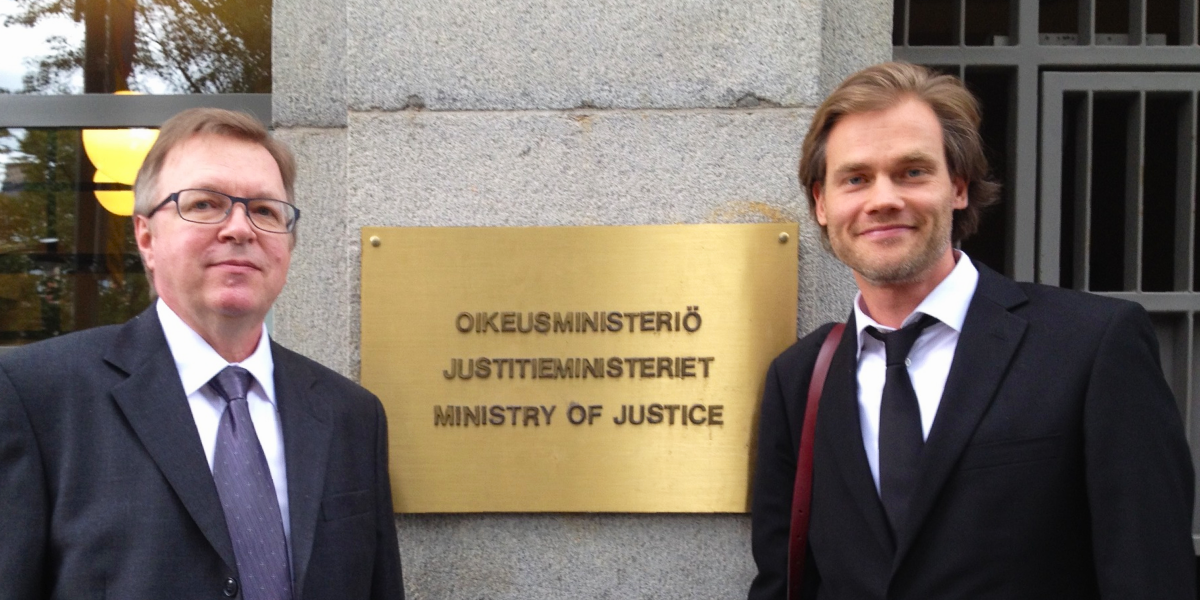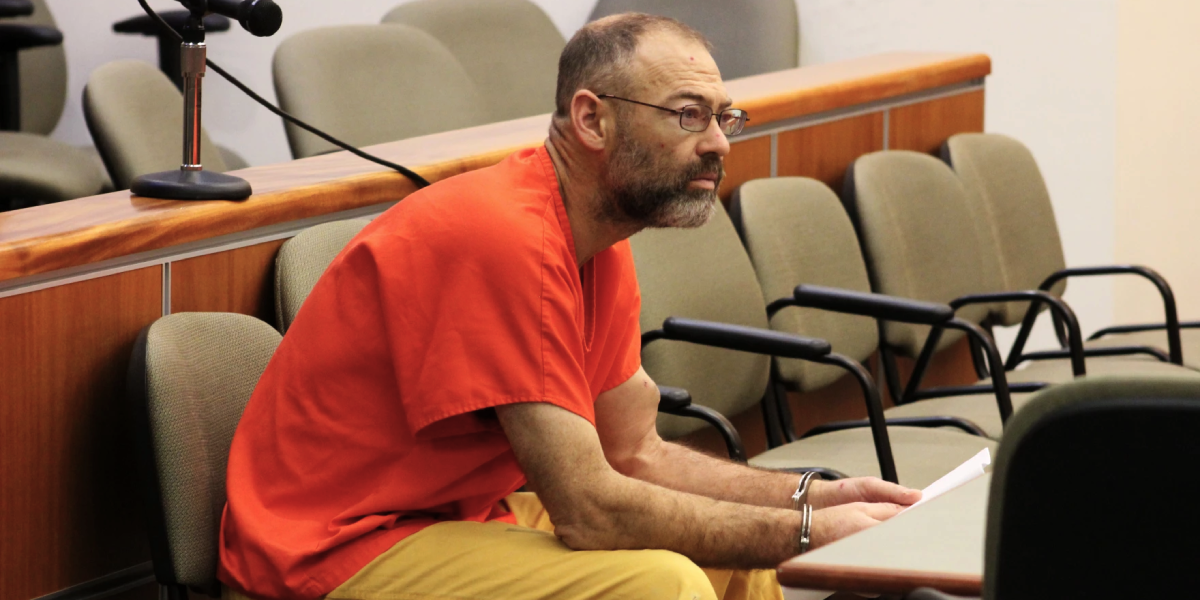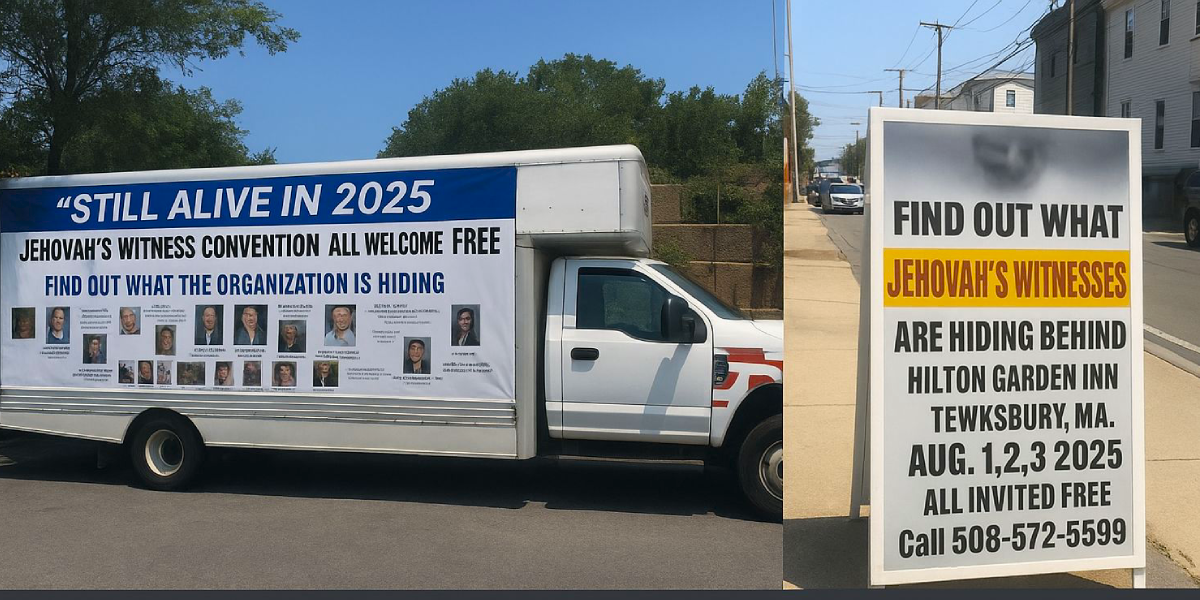
More than 11 years revealing secrets because there is no excuse for secrecy in religion – w1997 June 1; Dan 2:47; Matt 10:26; Mark 4:22; Luke 12:2; Acts 4:19, 20.

“Toxic faith is a destructive and dangerous involvement in a religion that allows the religion, not a relationship with God, to control a person’s life.” – Arterburn, S. & Felton, J. (1991). Toxic Faith: Experiencing Healing from Painful Spiritual Abuse.
Should State subsidies be used to promote and fund toxic beliefs and practices such as shunning? If yes, then other extreme religions such as Muslims, can also justify demanding State funding to support Sharia law, amputation and stoning of women.
Somehow from the tone of the appeal dossier, Jehovah’s Witnesses appear to think that they are entitled to and demand tax-payers money to fund their toxic beliefs and practices.
On January 27th 2022, the Government of Norway withdrew its State grant to Jehovah’s Witnesses, commencing with 2021. Jehovah’s Witnesses was given three (3) weeks to submit an appeal, which was sent on February 17, 2022.
As per their religious practice when responding to secular agencies and courts of law; and in a clever attempt to pull wool over the eyes of the Oslo State Administrator, Jehovah’s Witnesses conveniently left out important information, that if submitted in their appeal, would even more justify the State’s denial of taxpayers’ funds (The Rehab principle -The Watchtower 1993, 12/15 p. 25, Rahab—Declared Righteous by Works of Faith).
There is a part of the recruitment and indoctrination process deliberately omitted from the appeal dossier and which makes shunning so effective – Jehovah’s Witnesses use the scriptures at Proverbs 13:20 and 1 Cor. 15:33 to actively encourage recruits (interested ones and Bible Students) to cut off all existing social ties, support network and friendships and replace these with “wholesome, up-building associates” who are exclusively members of Jehovah’s Witnesses. The “Jade and Neeta” recruitment tutorial video shown at the 2020 Convention clearly brought out this harmful practice.
Here is a 2021 example of Jehovah’s Witnesses promoting the severance of existing social ties, found in the Enjoy Life Forever!—An Interactive Bible Course lesson 48 point 1 (a recruitment aid for interested ones and Bible Students):
We tend to become like the people we spend time with. This can be good or bad—and that is true whether we spend time with them in person or on social media. As the Bible says, “the one walking with the wise will become wise, but the one who has dealings with the stupid [those who do not love Jehovah] will fare badly.” (Proverbs 13:20) Friends who love and worship Jehovah can help you to stay close to him and to make good decisions. But close friends outside the congregation can cause us to draw away from Jehovah. No wonder the Bible encourages us to choose our friends wisely! When our friends are people who love God, we benefit both ourselves and them. We are able to “keep encouraging one another and building one another up.”—1 Thessalonians 5:11.
Other examples of this harmful practice can be found in the following Watchtower publications. Many more can be found using the research tool Watchtower Library 2015 available on their official website:
Thus when someone is disfellowshipped and subsequently shunned, there is oftentimes no other social ties, support network and friendships to turn to. It is a traumatic experience that most times results in mental health issues. The expelled member therefore is left all alone to catch himself to rebuild a new support system all over again. This is explains why shunning is so effective. Of course this is deliberately omitted in the appeal dossier.
According to paragraph 59 of the appeal dossier, Jehovah’s Witnesses claim that “believers act of their own free will when they choose to limit the friendship with former believers who now show so clearly that they disagree with their values and way of life.” Furthermore they claim at paragraph 61 that “Jehovah’s Witnesses ….. make a personal and free choice as to how they choose to spend their time with family and friends.”
These claims are false. Jehovah’s Witnesses here again fail to provide direction contained in the elders’ manual Shepherd the Flock of God in their appeal. Chapter 12, paragraph 17 states:
Though this is not an exhaustive list, brazen conduct may be involved in the following if the wrongdoer has an insolent, contemptuous attitude made evident by a practice of these things: (1) Unnecessary Association With Disfellowshipped or Disassociated Individuals: Willful, continued, unnecessary association with disfellowshipped or disassociated nonrelatives despite repeated counsel would warrant judicial action.—Matt. 18:17b; 1 Cor. 5:11, 13; 2 John 10, 11; lvs pp. 39-40.
If a publisher in the congregation is known to have unnecessary association with disfellowshipped or disassociated relatives who are not in the household, elders should use the Scriptures to counsel and reason with him. Review with him information from the Remain in God’s Love book, page 241. If it is clear that a Christian is violating the spirit of the disfellowshipping decree in this regard and does not respond to counsel, he would not qualify for congregation privileges, which require one to be exemplary. He would not be dealt with judicially unless there is persistent spiritual association or he persists in openly criticizing the disfellowshipping decision.
Therefore if a member is found to be associating with someone they know is disfellowshiped, the congregation elders can take judicial action against that member, oftentimes resulting in being expelled and shunned. I personally knew someone who get disfellowshipped here in Trinidad & Tobago by over-zealous congregation elders for this “scriptural offense”. The threat of getting disfellowshipped always hangs over the heads of Jehovah’s Witnesses – they do not “act of their own free will when they choose to limit the friendship with former believers”.
There are numerous Watchtower publications that actively promote shunning and place pressure on current members to shun and ostracize their friends who have been disfellowshipped. Here are a few examples:
The Watchtower 1981 9/15 pp. 24-25 par. 23 Disfellowshiping—How to View It
As distinct from some personal “enemy” or worldly man in authority who opposed Christians, a disfellowshiped or disassociated person who is trying to promote or justify his apostate thinking or is continuing in his ungodly conduct is certainly not one to whom to wish “Peace.” (1 Tim. 2:1, 2) And we all know from our experience over the years that a simple “Hello” to someone can be the first step that develops into a conversation and maybe even a friendship. Would we want to take that first step with a disfellowshiped person?
How to Remain in God’s Love (2017) p. 241 Endnotes
When someone who has seriously sinned does not repent and refuses to follow Jehovah’s standards, he can no longer be a member of the congregation. He needs to be disfellowshipped. When someone is disfellowshipped, we have no more dealings with that person and we stop talking to him. (1 Corinthians 5:11; 2 John 9-11)
Organized to Do Jehovah’s Will (2005), chap. 14 p. 151 par. 29 Maintaining the Peace and Cleanness of the Congregation
When it is necessary to disfellowship an unrepentant wrongdoer from the congregation, a brief announcement is made, stating: “[Name of person] is no longer one of Jehovah’s Witnesses.” This will alert faithful ones in the congregation to stop associating with that person.—1 Cor. 5:11.
There was even a 2016 convention video in which a mother declined a telephone call from her disfellowshiped daughter. It therefore can never be said “believers act of their own free will when they choose to limit the friendship with former believers” and that “Jehovah’s Witnesses ….. make a personal and free choice as to how they choose to spend their time with family and friends.”
Jehovah’s Witnesses have not been completely open and transparent regarding their shunning practices, their recruitment and indoctrination process; and use of State funds. It’s pretty certain that taxpayer’s money was used to import countless printed religious literature (including the references above) that promotes shunning; and sent to their New York corporations for the production of religious material including convention videos (“Loyally Uphold Jehovah’s Judgments – Shun Unrepentant Wrongdoers” – 2016 Convention) that promotes shunning.
There is nothing in the 32-page dossier in which Jehovah’s Witnesses explain why the State must continue to fund their extreme and toxic beliefs. It’s one thing to claim freedom of religion to practice extreme and toxic religious beliefs – its another thing to demand State funding, other tax benefits and exemptions to support such a religion as Jehovah’s Witnesses.
Nowhere in their appeal do Jehovah’s Witnesses make any reference or acknowledgement to the impact on the mental health of the shunned victim and the unnecessary burden this places on the wider community. Nor does it give an account of State funds previously received which was disbursed for professional therapy of shunned persons who choose to return to the religion after how many years of experiencing this inhumane toxic practice.
The State do have the exclusive right and a duty of care, to examine toxic, destructive beliefs and practices of any religion when such beliefs are brought to their attention by citizens. Especially so when claims of harm to citizens are caused by such beliefs and result in the disintegration of the family unit. The State do have a right impose subsequent sanctions as they see fit to reduce the risk of exposure and recruitment, including but not limited to the withdrawal of State funding, grants, subsidies and tax-exemption benefits.
















Lester Somrah writes about the beliefs and practices of Jehovah’s Witnesses on his social media platforms and was baptized as a member in 1998.